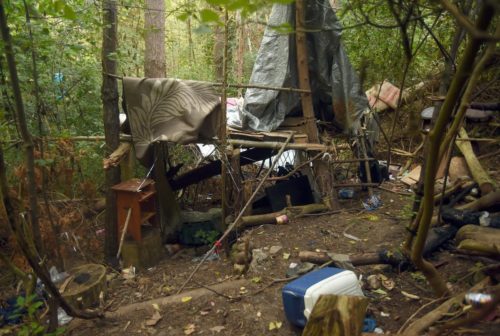The Record: Tracking deaths of homeless is vital, but in Waterloo Region this information is not widely shared
WATERLOO REGION — How many people experiencing homelessness have died this year in Waterloo Region? How many people died last year?

In Toronto, 143 unhoused people died in 2020 — that’s nearly three deaths a week. In the first half of this year, data suggests at least 94 people died. The number of deaths in Toronto’s homeless community has risen sharply since 2018 and local policies have been drafted in response.
But in Waterloo Region, this data is not widely shared. Local shelters are expected to report any deaths in a “community database” that is only available to the Region of Waterloo and select service providers, but not every death in the homeless community is being accounted for.
If someone dies while staying in an encampment, or couchsurfing at a friend’s apartment, that person’s death may not be documented because there’s no organization dedicated to tracking and reporting the information.
[…]When it comes to tracking deaths related to drug use, the data is easier to come by.
According to data from the Office of the Chief Coroner, there were 145 drug-related deaths reported in Waterloo Region in 2020. This includes suspected deaths related to all drugs, including alcohol.
In the first 11 months of this year, 135 suspected drug poisoning deaths have been reported. Most involve fentanyl, and about half involve more than one substance. These more recent numbers are subject to change slightly as toxicology results come in.
Deaths related to opioid poisoning are monitored by the Waterloo Regional Police Service. As of Dec. 6, there were 87 deaths reported through the regional overdose monitoring report. Last year there were 102 deaths, and in 2019 there were 62.
Michael Parkinson, drug strategy specialist with the Waterloo Region Crime Prevention Council, said in Ontario around one in six drug poisoning deaths are among people who lack stable housing. With 135 overdose deaths reported locally so far this year, data suggests more than 20 of those people were homeless.
“So far as I know, no one is specifically monitoring (these deaths), and it’s a problem,” he said.
Parkinson said he wasn’t aware local shelters collected information about deaths when they occur in the shelter system, and he does not have access to it.
“The absence of robust data collection always makes it problematic for planning and intervention,” he said.
These deaths are preventable and while there is work being done at the local level around harm reduction and preventing drug poisoning, this is a health issue, he said. Health is typically the responsibility of upper levels of government, not local municipalities.
With the absence of leadership from the provincial or federal governments, the response to overdose deaths in the homeless community is very different than the response around deaths on regional roads, he said, as an example.
Ontario is one of the safest road jurisdictions because the province engages in policy and education campaigns to make that happen.
“We have not seen that kind of response on what is arguably Canada’s greatest public health crisis, barring COVID, but since the Spanish flu,” he said.
Click here to read the full article.
